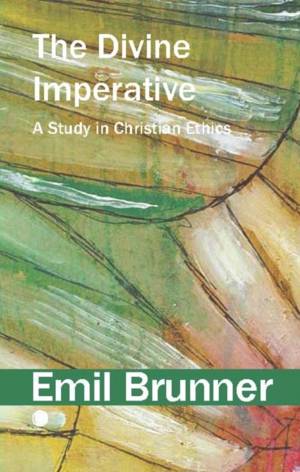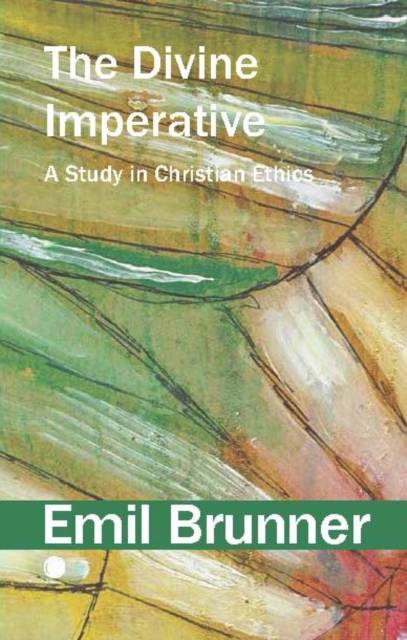
- Afhalen na 1 uur in een winkel met voorraad
- Gratis thuislevering in België vanaf € 30
- Ruim aanbod met 7 miljoen producten
- Afhalen na 1 uur in een winkel met voorraad
- Gratis thuislevering in België vanaf € 30
- Ruim aanbod met 7 miljoen producten
Zoeken
€ 40,95
+ 81 punten
Uitvoering
Omschrijving
"What ought we to do?" is the guiding question of Emil Brunner's The Divine Imperative. Here this age-old question is taken up by Brunner and is answered in light of his Reformed Christian theology. Dubbed a "Protestant Ethic", The Divine Imperative is a systematic ethical treatise, and for Brunner the first to be centred around the Reformed faith. Here Brunner lays the groundwork for a Christian conception of the moral life in a world where morality itself is often doubted or denied. Animated by the need to respond to an encroaching moral relativism, where many believe that there is no true Right nor Wrong, no true Good nor Evil, Brunner provides an answer to the problem of ethics and morality in the modern age. In doing so, Brunner engages with a wide range of theoretical and practical issues: from philosophy's rationalisation of morality, to the crisis of marriage, to the task of the Christian living under capitalism.
Specificaties
Betrokkenen
- Auteur(s):
- Uitgeverij:
Inhoud
- Aantal bladzijden:
- 200
- Taal:
- Engels
Eigenschappen
- Productcode (EAN):
- 9780227180877
- Verschijningsdatum:
- 30/10/2025
- Uitvoering:
- Paperback
- Formaat:
- Trade paperback (VS)
- Afmetingen:
- 138 mm x 216 mm
- Gewicht:
- 362 g

Alleen bij Standaard Boekhandel
+ 81 punten op je klantenkaart van Standaard Boekhandel
Beoordelingen
We publiceren alleen reviews die voldoen aan de voorwaarden voor reviews. Bekijk onze voorwaarden voor reviews.







